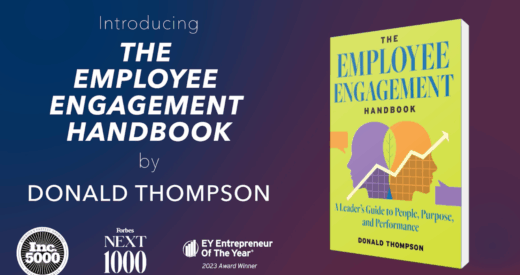Belonging isn’t hard to understand. Most of us have felt that connection with friends or family. We’ve all experienced a sense of comfort and safety when we’re in a familiar place, surrounded by those we love and trust. Belonging is a powerful human need, and without it our mental and physical well-being suffers.
The same is true in the workplace. When employees show up to work confident and secure, they are able to contribute their best work. When individuals are afraid to voice their opinions or be themselves, they are less engaged and less productive.
“Belonging means being valued,” says Rebecca Mede, Manager of Culture, Inclusion, and Belonging at Sydney Water. “Belonging means that people can speak up, that people can exchange ideas, that people can feel that they can be themselves and be comfortable in their own skin.”
Belonging and employee engagement are key results of diversity, equity, and inclusion (DEI) strategies. Even though some leaders might be reluctant to talk about DEI, the proven outcomes will ensure that DEI will be a priority, no matter its label. All business leaders can agree that they want their employees to feel comfortable and productive at work.
Organizations thrive when belonging is fostered and suffer when it’s absent. According to Great Place To Work, belonging in the workplace is “an employee’s sense that their uniqueness is accepted and even treasured by their organization and colleagues. [It] is an accumulation of day-to-day experiences that enables a person to feel safe and bring their full, unique self to work.”

Belonging is Important to Business
When employees contribute their best work, there are tangible business gains. Great Place To Work found that when employees experience belonging, they are three times more likely to look forward to work, three times more likely to say their workplace is fun, nine times as likely to believe people are treated equitably, and five times more likely to want to stick around. These outcomes lead to positive business drivers such as increased productivity and better retention rates.
These results have serious monetary implications as well. In a study published in Harvard Business Review, high belonging was linked to a 56% increase in job performance, a 50% drop in turnover risk, and a 75% reduction in sick days. Researchers calculated that for a 10,000-person company, this would result in annual savings of more than $52 million.
Several other studies have shown a correlation between belonging and beneficial business outcomes. Psychological research has shown that a sense of belonging increases occupational success. And The American Immigration Council and Over Zero’s recent “Belonging Barometer,” found that belonging was tied to retention and greater willingness to recommend one’s job.
Belonging as a Competitive Edge
Fostering belonging doesn’t only have internal benefits; it can impact the external image of a company as well. When an organization prioritizes belonging, it can leverage this asset to increase feelings of inclusion among clients and customers. When clients feel a connection to a brand, loyalty increases and market share expands.
We can look to Walmart as an example. Walmart recently implemented sensory-friendly hours from 8 to 10 a.m. every day in all its stores across the U.S. and Puerto Rico. This makes it easier and more comfortable for folks with sensory-processing disorders and their families to shop. It invites them into the store in a way that makes them feel like they belong there. This move by Walmart is an investment in their customer experience and pays dividends when customer loyalty increases as a result.
How to Increase Belonging at Work

With all the aforementioned benefits of belonging, one might assume that leaders are prioritizing belonging as a strategic priority. However, the same Belonging Barometer found that 64 percent of Americans reported non-belonging in the workplace.
At the end of the day, fostering belonging in the workplace means cultivating an environment where people bring their full selves to work, contribute their thoughts and opinions, and feel as though they are a part of a team. We’ve identified eight key methods to help you advance belonging at your organization.
1) Create psychological safety.
Psychological safety is the feeling that you can share your honest input without fear of retaliation, criticism, or ridicule. In order to feel belonging, employees must feel like their voices are heard and considered. Without psychological safety, belonging is moot.
“You can’t do anything without psychological safety. I feel like it’s the oxygen of a culture,” says Sienna Lytle, CDE®, Senior Manager, Diversity, Inclusion, and Belonging at HubSpot. “It’s going to determine how employees show up and do their work. It is the temperature gauge for the outputs of business.”
2) Build genuine relationships.
Community plays a large role in belonging. Strive to form personal connections with employees and let them know that they are a valued part of the team. Employees want to know that they are seen as an individual and not just another cog in a machine.
3) Institute formal mentorship programs.
Mentorship and sponsorship programs can be especially important in increasing feelings of belonging in culturally diverse and women employees. Historically underrepresented and marginalized individuals may sometimes feel like “the only” or one of only a few of their identity group in the workplace. Pairing these employees with mentors can promote meaningful connections that make them feel like they belong.
4) Act as an ally.
If you notice that someone is being excluded – whether intentional or not – take an action to make them feel included. For instance, if someone can’t seem to get a word in during a meeting, take a moment to ask for their input. Or, if you notice someone was left out of a team lunch, be sure to invite them to tag along.
5) Avoid favoritism.
Favoritism can quickly erode company culture and make “unfavored” people feel as though they don’t belong. Make sure that everyone is treated with respect and equity, so that all employees feel valued.
6) Involve employees in decision-making processes.
When employees have a say in how the business operates, they have a larger stake in the success of the company. They gain a sense of ownership over outcomes and feel a real sense of purpose at work.
7) Be transparent.
Secret keeping or dishonesty can make people feel ostracized or “out of the know.” When individuals are aware of the information that shapes decisions and actions, they are better equipped to contribute meaningfully to discussions and collaborative efforts. As a result, they feel more involved and included.
8) Prioritize onboarding.
To get things off on the right foot, it’s critical to make new employees feel welcome and included from day one. Having a robust onboarding process can help, ensuring that employees get to know their colleagues, understand their role, and feel empowered to contribute from the start.
Why is Belonging Important to People?

There are several individual benefits of belonging as well. The Belonging Barometer found that in addition to workplace benefits, belonging also leads to better physical and mental health; increased life satisfaction; and decreased pain, stress, and loneliness. It also leads to better social cohesion, including community involvement.
This aspect of social cohesion is especially interesting as it links back to the workplace. In the same study reported by Harvard Business Review, researchers found that feeling excluded causes people to give less team effort. The direct impact on the workplace is that if an employee feels excluded, they likely aren’t giving their all to the organization.
The significance of belonging extends beyond personal fulfillment to play a crucial role in the success of organizations. Extensive research affirms that a sense of belonging profoundly influences mental, physical, and social well-being, making it a fundamental human need. In the professional context, companies that prioritize belonging experience tangible benefits, including heightened productivity, improved retention rates, and positive financial outcomes. Despite these advantages, a concerning 64% of Americans report feeling a lack of belonging at work.
Addressing this challenge requires strategic measures from leaders. By creating an environment where individuals feel valued, heard, and connected, businesses not only contribute to employee well-being but also unleash the full potential of their workforce. Belonging is not merely a nicety but a strategic imperative for organizations aiming to thrive and individuals seeking fulfillment in the workplace.
Creating an environment of belonging is just one indication of an inclusive leader. To assess your leadership team’s overall effectiveness, check out TDM Leaderview™. TDM LeaderView examines team strengths and gaps across seven core competencies. Identifying these areas enables teams to become tightly integrated and high-performing. With personalized learning journeys backed by our award-winning content and a visual dashboard to track progress, LeaderView provides tools and insights to establish culturally competent teams at scale.
Kaela Sosa is co-founder and Manager, Curriculum and Programming at The Diversity Movement. Her expertise includes psychology, gender identity and sexual orientation and racial identities. Kaela has written and spoken about a range of topics: active allyship, the inclusive talent lifecycle, disability etiquette, LGBTQ+ inclusion and inclusive language. At The Diversity Movement, she leads the development and execution of learning programs, including digital learning, online courses, certificate programs and certification opportunities. Connect with or follow Kaela on Linkedin to learn more.




